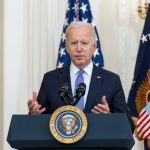The recent uproar from Democrats regarding Tulsi Gabbard’s potential appointment as Director of National Intelligence needs to be seen for what it really is: yet another desperate attempt to recycle the “Russia, Russia, Russia” mantra. This tired trope, which has become the hallmark of Democratic theatrics, is flaring up once more, all thanks to Donald Trump’s nomination of Gabbard. Instead of addressing the pressing issues facing the nation, Democrats are clinging to baseless allegations and conspiracy theories about her supposed connections to Russia.
In the frenzy that has followed Trump’s announcement, critics on the left have been quick to brand Gabbard as a Russian asset. They have failed to present any credible evidence while instead pointing to her past interactions with foreign leaders, particularly in Syria, as if that alone amounts to treason. Instead of engaging in a substantive discussion about her qualifications, these politicians prefer to cast Gabbard as a dangerous player in a geopolitical game, hoping to sway public opinion against her during the confirmation process.
RUSSIA! RUSSIA! RUSSIA! (AGAIN) https://t.co/XO58hPIBbp
Here we go again…
Dem. Wasserman Schultz says Tulsi Gabbard is a Russian Asset 🤦🏻♂️
I have to say… out of all the lies the democrats have said over the years…
RUSSIA RUSSIA RUSSIA has made the Democratic Party look… pic.twitter.com/Wf4rUIfGDp
— Iam Breitbart (@JacSarobahs) November 16, 2024
Prominent Democrats like Debbie Wasserman Schultz have joined the chorus, insinuating that Gabbard’s diplomatic approach equates to supporting war criminals. Such statements reveal not only a lack of understanding of foreign relations but also a concerning intent to stifle voices that oppose constant military intervention. It seems that for these politicians, diplomacy is a dirty word when it doesn’t fit their narrative, instead branding any attempt at dialogue as collusion with evil regimes.
The Democratic narrative is echoed across various platforms, with representatives like Abigail Spanberger and Jason Crow echoing the warning that Gabbard’s appointment could damage U.S. intelligence relationships. The concern expressed by these lawmakers is devoid of substantial ground; it appears more like an orchestrated smear campaign to delegitimize Gabbard’s qualifications. If anything, this points to their own fears that a fresh perspective on U.S. foreign policy could disrupt the status quo of endless military commitments that they have come to endorse.
What’s truly ironic is that these same Democrats who have critiqued Gabbard’s foreign diplomacy claimed to champion peace during the Bush administration. Their present vitriol suggests a complete reversal of those principles, revealing their genuine stance — an unwavering commitment to continuous military engagement rather than any real interest in diplomatic solutions or peace-building initiatives. They have removed the mask of anti-war sentiment, and their current criticisms of Gabbard only serve to underscore that their ideological consistency is anything but steadfast.
In the end, the Democratic talking points aimed at hindering Gabbard’s confirmation are less about protecting national interests and more about maintaining their grip on foreign policy narratives. Instead of fostering a discussion on genuine diplomatic solutions, they resort to scare tactics and conspiracy theories. This latest chapter in the political playbook makes it all too clear: the left fears any challenge to their longstanding foreign policy approach and is willing to resort to character assassination to preserve it.




